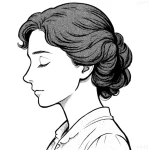“O thou invisible spirit of wine, if thou hast no name to be known by, let us call thee devil.”

- April 26, 1564 – April 23, 1616
- Born in England
- Playwright, poet, actor
table of contents
Quote
“O thou invisible spirit of wine, if thou hast no name to be known by, let us call thee devil.”
Explanation
This quote reflects a deep frustration with the overpowering effects of alcohol. The “invisible spirit of wine” metaphorically refers to the alcohol that can have a profound influence on a person, often leading to destructive behavior. Historically, during the time this was likely said, alcohol consumption was prevalent, but the consequences, such as addiction and personal ruin, were becoming more apparent in society. The term “devil” is used to signify the destructive power that alcohol can have over the individual, similar to how many view evil or malevolent forces.
In the modern context, this quote still applies as a warning about the dangers of alcohol abuse. The social and health-related consequences of excessive drinking are well-documented today, with many people and organizations working to raise awareness about addiction and its impact on families and communities. For example, support groups like Alcoholics Anonymous (AA) are a direct response to this kind of personal battle against a “devil” in the form of alcohol.
The use of “devil” not only emphasizes the severity of alcohol’s impact on one’s life but also conveys the idea that its influence can be as powerful and deceptive as any malevolent force. This metaphorical framing of alcohol as a “devil” gives it a moral weight, urging caution and self-control to prevent it from dominating one’s life.
Would you like to share your impressions or related stories about this quote in the comments section?


